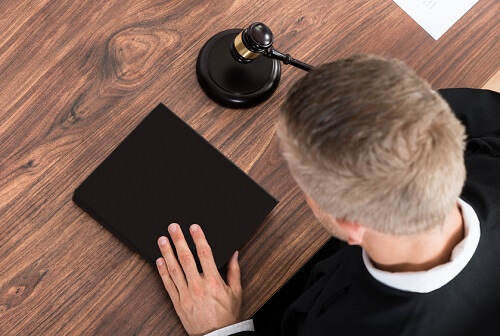
The standards committee did not agree to a misconduct charge, citing several mitigating factors

An unnamed former partner has been censured and fined after being investigated by the New Zealand Law Society’s lawyers’ standards committee.
The partner, identified only as Mr X, admitted to sexually harassing two of his former firm’s employees. The incidents amounted to unsatisfactory conduct, the committee found, but it said that a charge of misconduct before the New Zealand Lawyers and Conveyancers Disciplinary Tribunal was not justified, citing several mitigating factors.
The lawyer has been censured, fined $12,500, and ordered to pay costs of $2,500.
In the first incident, Mr X is said to have been intoxicated during “Friday night drinks” at his former firm when he touched the leg of a female solicitor seated near him and said, “You are very attractive.”
The solicitor, who was upset and left, did not want to lay a formal complaint but wanted the incident to be known to the other partners of the firm in the hopes that they would speak to and advise Mr X that his behaviour was unacceptable.
There were discussions between Mr X and senior lawyers of the firm, including the female solicitor’s supervising partner, an employment partner, and the managing partner. Mr X did not deny the incident had taken place, but said he did not remember it happening. This was understood to mean that he had suffered a blackout because of being drunk, the committee said.
Mr X was rebuked by the firm, warned not to act in the same way again, and told to not attend staff events with alcohol involved in the near future.
In the second incident, which was at the firm’s end-of-year party held outside firm premises, Mr X directed unwanted attention to another firm employee. He first approached the non-lawyer female employee on the dance floor and pinched her bottom, which left a bruise.
He was told to stop, but he pinched her bottom again later that evening. At one time during the event, Mr X grabbed the employee’s wrist and forcibly squeezed her hand against his groin while saying, “This is for you.” The employee immediately withdrew her hand and a male colleague removed Mr X from the situation. After leaving the venue, Mr X propositioned the employee by telling her, “Are you coming with me?”
Mr X, who was visibly intoxicated during the event and was slurring his speech and walking unsteadily, was reported to the firm the following Monday.
During the firm’s internal disciplinary process, Mr X also did not deny the second incident and also claimed he had no recollection of them. He was subsequently suspended on the day and on the following day after second incident was reported.
The firm’s partners agreed to remove Mr X from the partnership and he later elected to resign. His resignation took effect four months later, but he did not return to the firm after his suspension.
The firm reported the former partner’s misconduct to the Law Society and said the harassed employees were supported appropriately. The former partner was also offered counselling and support.
The lawyers’ standards committee said that mitigating factors that contributed to their decision included that the lawyer took full responsibility for his actions and has shown “significant contrition and remorse.”
He has also taken and is taking positive steps to ensure that the behaviour will not be repeated. These include seeking treatment from a mental health specialist.
The two employees have also said they are satisfied with the way the firm handled the matter internally. The committee also considered that Mr X has no prior disciplinary history.
“While such conduct is clearly unacceptable, it does not reach the level to warrant a disciplinary charge of misconduct, and nor does the conduct justify Mr X ’s removal from the profession (or suspension from practice),” the committee said.
“Some recognition must be given to the steps Mr X has taken to address his failings,” it said.
Neil Mallon, Law Society acting general manager, said that the lawyer body investigates all complaints it receives, including sexual harassment and inappropriate workplace behaviour complaints.
“Ensuring fairness to all involved and a full investigation takes time. The legislation currently prevents us from providing information on whether we have received or are investigating specific complaints until they are concluded, when a standards committee can decide whether to publish the facts of the decision and whether to include the lawyer’s identity. The Law Society takes its regulatory role very seriously and will investigate all complaints it receives including those relating to unacceptable conduct,” he said.
“There is also the question of whether the current regulatory system is fit for purpose when it comes to these types of investigations. This was the focus of the report by the working group chaired by Dame Silvia Cartwright which the Law Society Board accepted and is now actively working through. The standards committee’s decision includes a full discussion of the committee’s current jurisdiction to consider and address conduct by a lawyer that occurs within a social setting within a law firm. The matters are complex and we have released a plain-English summary of the issues involved,” he said.
A sanction is a grave penalty, Mallon said.
“In deciding on an appropriate penalty, the standards committee took into account the lawyer’s acceptance of full responsibility, the actions he has since taken to address the difficulties in his personal life and his behaviour, the views of the two employees involved and the firm’s actions. It imposed a fine which is over 80% of the maximum fine a standards committee can impose and it ordered him to be censured. A censure remains on a lawyer’s disciplinary record throughout their career and is a serious sanction,” he said.